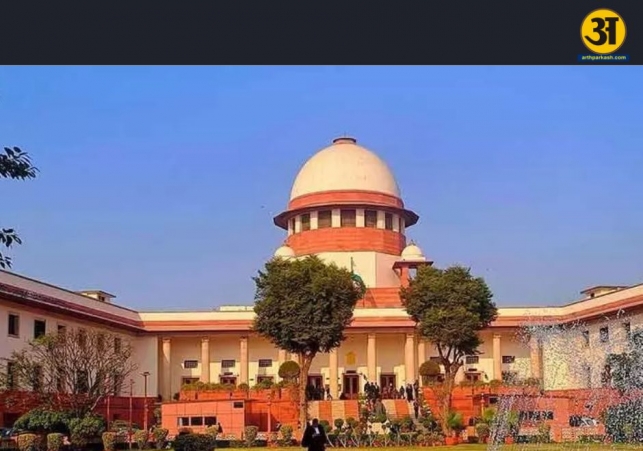
Centre tells SC Waqf Act can't be stayed without testing validity
Centre tells Supreme Court: Waqf Act can’t be stayed as its validity is presumed
- By Gurmehar --
- Friday, 25 Apr, 2025
The Central Government has asked the Supreme Court not to stop the Waqf Act, 2025. It told the court that a law passed by Parliament cannot be put on hold just because it is being challenged. The government said there is a legal rule that such laws are considered valid unless proven wrong. So, a general or "blanket" stay on the Act should not be allowed.
The government gave its reply in a 1,332-page document, called a preliminary counter affidavit. This was filed by Shersha C Shaik Mohiddin, a senior official in the Ministry of Minority Affairs. The Centre was responding to several petitions in the Supreme Court that claim the new Waqf Act violates the Constitution.
The government said that there has been a large increase in waqf land after 2013. Before that, the total area under waqf properties in India was about 18.29 lakh acres. But more than 20 lakh hectares (almost five times more) were added after 2013. The affidavit claimed that there were many reports of misuse of older laws to wrongly grab private or government land.
The Centre argued that the Constitution gives Parliament the right to make laws. It said the Waqf Act was passed after a deep and detailed study. A parliamentary committee that included members from all major political parties had examined the matter before the law was made.
Parliament followed legal steps, SC hearing on May 5
The government said that the new Waqf law was passed properly by Parliament. It was meant to make sure that religious trusts like waqf are managed honestly. These trusts are set up for religious or charitable purposes, and the government said the law does not interfere with religious freedom. It only ensures that such properties are protected from misuse.
The government also said that courts have the power to review laws, but only if the law goes against fundamental rights or if Parliament had no power to make that law. Until that is decided, the law should be treated as valid. The Centre added that putting the whole law on hold before such a decision could lead to problems.
The affidavit rejected the argument that the Act takes away religious freedom. It said that Parliament stayed within its powers and respected religious values while framing the law. The Centre said that removing or replacing the law made by Parliament without a proper court ruling would not be right.
ALSO READ: India rejects Bangladesh official’s remarks on West Bengal communal violence
Earlier on April 17, the government had told the court that it would not make any changes to waqf properties or appoint new members to the Central Waqf Council and state waqf boards until May 5. This was done as a temporary step while the court hears the matter.
The Supreme Court bench, led by Chief Justice Sanjiv Khanna, will now hear the case on May 5. The court is expected to decide whether it will pass any temporary order, such as stopping some parts of the law, until it makes a final decision.
The Centre made it clear that the Waqf Act was based on facts, studies, and was made through legal processes. It said that stopping the law now could cause damage if the petitions turn out to be wrong later.





